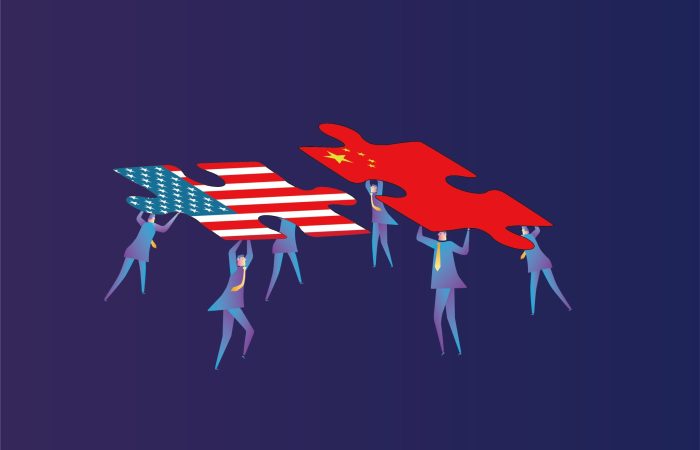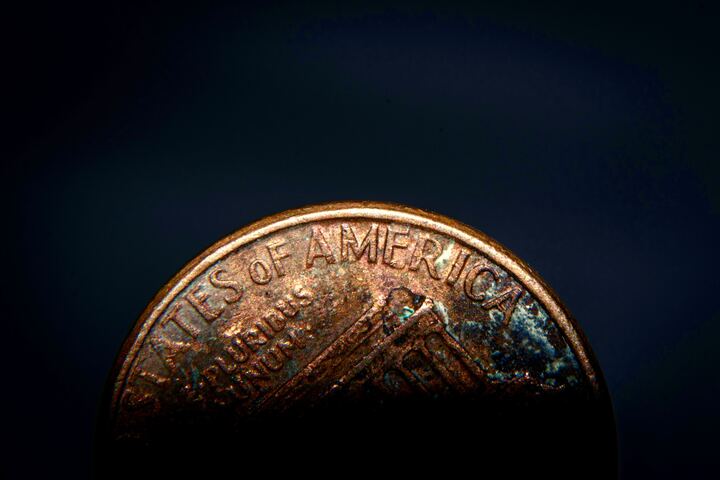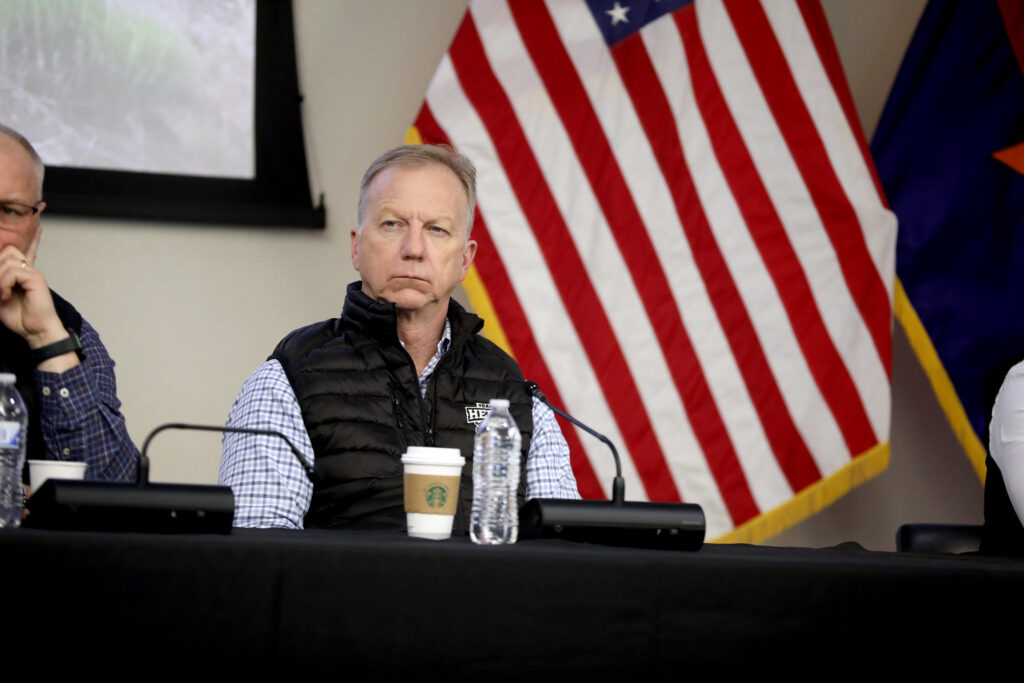On June 28, 2023, Paul Haenle, the Maurice R. Greenberg Director’s Chair at the Carnegie Endowment for International Peace, sat down with Dennis Wilder, a senior fellow for the Initiative for U.S.-China Dialogue on Global Issues at Georgetown University, to discuss Mr. Wilder’s opinion on stabilizing the U.S.-China relations. The discussion occurred shortly after U.S. Secretary of State Blinken concluded his visit to China and before U.S. Secretary of the Treasury Janet Yellen’s trip to China. The event is the third of Carnegie China’s Distinguished Speakers Series.
When asked about his thoughts on Secretary Blinken’s visit to China, Wilder noted that the visit occurred at a time when both the United States and China felt that the relationship reached a point of “dangerous” downward spiraling. According to Wilder, both sides showed interest in setting the floor for stabilizing the bilateral relationship, but it is a thin, fragile floor and just a beginning step. Wilder argued that the balloon incident was a special operation program of the People’s Liberation Army (PLA) that went “awry.” China “got themselves in a corner” through the incident and expressed hopes to get out of the “mess” through signals such as Chinese Commerce Minister Wang Wentao’s meeting with U.S. Secretary of Commerce Gina Raimondo and the arrival of Xie Feng, the new Chinese ambassador, to the United States. In this sense, Blinken’s visit to China sends a similar, albeit “bigger,” signal that the bilateral relationship could move on. Wilder emphasized, however, that the United States did not overreact to the balloon incident, contrary to China’s claims, and that the PLA needs to change some of its attitude and “dangerous” practices. When asked about the potential FBI report on the balloon incident, Wilder argued that there is no point to be high profile about the incident now and that the American public has the right to know what happened. Accordingly, Wilder suggested that the release of “a simple report” by, for example, John Kirby, might be better than “an extensive FBI forensics report.”
When asked about China’s recent actions towards consultancies and due diligence firms in China, Wilder responded that the targeted companies were hiring people who had worked within China’s government system and that Beijing probably identified such moves as espionage and/or attempts to get access to state secrets. According to Wilder, Beijing is drawing a red line here and cautioning Chinese citizens against similar behavior; especially after the passage of its new anti-espionage law. Wilder acknowledged that these investigations sent a broader message about doing business and investing in China, but was not sure whether it is what Beijing had hoped or planned. Meanwhile, Wilder pointed out that WeChat and Alipay—China’s two leading e-payment systems—have recently allowed their users to link international credit cards issued by Visa and Mastercard, a notable progress compared to past practices. As such, Wilder expects to see more positive signs of China’s opening-up in the next few months.
Commenting on Beijing’s reluctance to accept the Biden administration’s framework of ‘U.S.-China strategic competition,’ Wilder first noted an emerging sense of “Chinese exceptionalism;” a concept that promotes values such as win-win situations, world peace and common humanity. Accordingly, Chinese leaders might find it difficult to accept the notion of competition; a concept which they perceive as an American idea that allows only one winner. When talking about the lack of progress in establishing ‘guardrails’ to the bilateral relationship, Wilder argued that rhetoric of a “new Cold War” in the United States could signal to Beijing that the United States is seeking China’s demise as its end goal. As such, Beijing would reject the establishment of ‘guardrails’ and perceive it as Washington’s attempt to create more room for pressuring China. Wilder concluded that the Biden administration needs to be clearer about the American vision for the bilateral relationship and must show stronger commitments to President Biden’s statement at Bali that the United States does not seek the destruction of China.
Haenle also asked Wilder about his perception of U.S. alliances and partners in the Indo-Pacific region in the context of the U.S.-China relationship. Wilder noted that the Biden administration has done excellent work in building military, intelligence and other security ties with allies and partners such as South Korea, Australia and, to some extent, India. Wilder pointed out that the Quadrilateral Security Dialogue (QUAD) in particular has shown “fascinating” potentials by allowing for high-level sharing of emerging technologies among its members, given that such technologies may drastically change the nature of warfare. Reflecting on India Prime Minister Narendra Modi’s recent state visit to the United States, Wilder noted the increasing security alignment between the U.S. and India. Specifically, new opportunities are emerging for U.S. businesses as India is looking to the West for some of its purchase of military equipment. Wilder cautioned, however, that U.S.-India relationship has “natural limits” given India’s commitment to non-alignment. Meanwhile, the concern of an ‘Asian NATO’ arising is largely unfounded given that Asia is not as homogenous as Europe in terms of both its interests and positions.
In comparison to security and military ties, Wilder sees the United States as in a weaker position with regards to trade and economic engagement with Asian countries. He first observed that East Asian diplomats in Washington have a general nervousness about the current situation and want to get back to a less confrontational East Asia; a place where trade and people-to-people exchanges dominate. The Indo-Pacific Economic Framework might prove to be productive and forward-leaning if it developed more innovative solutions to cutting-edge issues such as the supply chain question, but does not deal well with the issue of trade. Wilder regretted the Trump administration’s decision to pull out (and the Biden administration’s decision to stay out) of the Comprehensive and Progressive Agreement for Trans-Pacific Partnership (CPTPP). According to Wilder, these moves caused damage to U.S. trade and economic leadership in the region, especially when the United States used to be the leading advocate of free trade.
On the United States’ and China’s respective visions for Asia, Wilder said that the Biden administration’s initial focus on ‘America-First’ and potentially protectionist policies—although softened later—has created some “disappointment” among Asian allies and partners. On the other hand, China’s vision of ‘Asia for Asia’ can also lead to suspicion among Asian countries as China does “tremendous damage” by unnecessarily building up tensions and escalations in the South China Sea. Commenting on U.S. engagement with Asian states, Wilder argued that China and China-related issues should not be the only focus of U.S. diplomats in Asian countries. The United States should treat the Asian countries with respect, always taking into account these countries’ individual issues and needs.
Concluding with the prospects of U.S.-China relations over the next few months, Wilder wondered whether talks and engagements on the economic side may help improve the bilateral relationship. In particular, Wilder advised looking out for the potential China visit by U.S. Secretary of Commerce Gina Raimondo, a moderate softening of U.S. export restrictions, movements with the U.S. outbound investment screening mechanisms, and the runup towards the Asia-Pacific Economic Cooperation (APEC).




